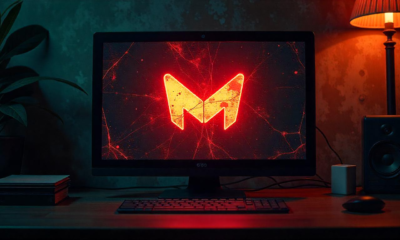Blog
Why 127.0.0.1:49342 Is Causing Chaos & How to Fix It Fast

Have you ever noticed your computer acting up, and suddenly, “127.0.0.1:49342” shows up? Maybe it feels like some mysterious code from a hacker movie. But don’t worry, it’s not as scary as it seems. In this article, we’ll dive into what 127.0.0.1:49342 actually is, why it might be causing problems on your device, and how you can fix it fast.
Table of Contents
What’s the Deal With 127.0.0.1:49342?
To break it down in simple terms, 127.0.0.1 is called a “loopback” address. It’s like the computer talking to itself. When you type 127.0.0.1 into your browser, you’re essentially telling your computer, “Hey, look at yourself!” It’s like dialing your own phone number and hearing yourself on the line.
Now, what’s with 49342? That’s a port number. Imagine it as a door through which data enters or leaves your computer. Your computer uses thousands of these doors (or ports) for different services. Port 49342 is one of them. Sometimes, certain programs or services use this port for communication.
So, when you see “127.0.0.1:49342,” it means your computer is trying to talk to itself through that specific port.
Why Is 127.0.0.1:49342 Causing Chaos?
If this address and port combo is supposed to be harmless, why does it sometimes lead to chaos? There could be several reasons for that:
- Conflicting Programs: If multiple programs are trying to use the same port at the same time, it can lead to conflicts. Think of it as two people trying to walk through the same door at once – it’s going to cause a jam.
- Firewall or Security Settings: Your computer’s security settings, including firewalls, might block or interfere with certain programs trying to use the port. This can cause issues, especially if the blocked program is critical for your system.
- Misconfigured Services: Some services may misbehave and continuously try to communicate through port 49342, even when they shouldn’t. This constant communication can slow down your system, causing it to lag or act strangely.
- Malicious Software: In some cases, malware might take advantage of certain ports, including 49342, to mess with your computer. While 127.0.0.1 is a local address, there’s always the possibility of something harmful exploiting this setup.
How to Fix the 127.0.0.1:49342 Issue – Fast!
The good news? You can fix the chaos caused by 127.0.0.1:49342 without needing a computer science degree. Here’s a quick step-by-step guide to help you get things back to normal.
1. Restart the Program or Service
The simplest solution is often the best. If you’re experiencing problems with a particular program that uses port 49342, try restarting it. This can force the program to reset its connection and solve any conflicts.
2. Check for Conflicting Programs
Use the built-in tools on your computer to check for programs that are trying to use the same port. On Windows, you can use Command Prompt to find which programs are using certain ports:
- Press Windows Key + R, type
cmd, and press Enter. - Type
netstat -aonand hit Enter. - Look for any instances of 127.0.0.1:49342 in the results.
If you find multiple programs using the same port, you may need to close one or adjust its settings.
3. Update or Reconfigure the Program
Sometimes, the problem lies in outdated or misconfigured software. Check if there are updates available for the program causing the issue. Developers often release updates to fix bugs, including ones related to port usage.
If that doesn’t work, try digging into the settings of the program to manually change the port it’s using. This is more advanced, but many programs allow you to set custom ports to avoid conflicts.
4. Adjust Your Firewall Settings
Your firewall might be blocking the program from properly using port 49342. Here’s how to fix that on Windows:
- Open Control Panel and go to Windows Defender Firewall.
- Click Allow an app or feature through Windows Defender Firewall.
- Find the program that’s having trouble and make sure it’s allowed through the firewall.
Remember to be cautious here – only allow trusted programs through your firewall.
5. Scan for Malware
It’s always good practice to scan your computer for malware, especially if you’re dealing with unexpected issues. Use a trusted antivirus or anti-malware software to do a full scan. If any malicious software is found, follow the steps to remove it.
6. Restart Your Computer
Yes, it’s the classic advice – but it works! Restarting your computer can clear up temporary glitches and reset ports that may have been stuck.
Preventing Future Issues
Now that you’ve fixed the problem, here are some tips to prevent it from happening again:
- Keep Software Updated: Always keep your programs and operating system up to date. Updates often include fixes for bugs like port conflicts.
- Limit Background Programs: Too many background services can lead to port conflicts. Limit unnecessary programs from running in the background.
- Regularly Scan for Malware: Make it a habit to scan your system for malware to catch any potential issues early.
- Monitor Port Usage: If you continue to have problems, consider using a port monitoring tool to keep track of which programs are using which ports. This can help you quickly identify conflicts in the future.
Conclusion
While “127.0.0.1:49342” might sound like a complicated technical issue, it’s often just a small conflict in your computer’s system. By understanding what it is, why it causes problems, and how to fix it quickly, you can avoid future headaches. The next time this cryptic combination pops up, you’ll know exactly what to do to keep your computer running smoothly.
Blog
Luxury Event Staffing by Runway Waiters: What Sets Us Apart from the Rest

When it comes to hosting an unforgettable event, every detail matters. From the venue to the décor, the food, and the entertainment, each element must come together seamlessly to create an extraordinary experience. One often overlooked aspect of a flawless event is the quality of event staffing. This is where luxury event staffing by Runway Waiters truly shines. We specialize in delivering not just staff, but a premium service that elevates your event to new heights. But what exactly sets Runway Waiters apart from other event staffing agencies? Let’s explore the defining factors that make us the top choice for luxury event staffing.
Expertise and Professionalism
At Runway Waiters, professionalism is our cornerstone. Our team is composed of highly trained professionals who bring more than just skills—they bring an attitude of excellence and a commitment to impeccable service. Unlike typical staffing agencies that might supply event workers with minimal training, Runway Waiters invests heavily in training our staff to understand luxury standards, client expectations, and discreet service techniques. Our waiters and event personnel know how to anticipate guests’ needs, work seamlessly with catering teams, and manage the flow of service without disrupting the event’s ambiance.
Tailored Staffing Solutions for Every Event
No two luxury events are the same. We understand this, which is why we offer personalized staffing solutions designed around your specific event requirements. Whether it’s an elegant wedding, a high-profile corporate gala, a private VIP party, or a fashion show, Runway Waiters assembles a team that perfectly fits the occasion. Our staffing approach considers the scale of the event, the venue layout, the nature of the service needed, and the style of the event, ensuring that every client receives exactly what they need — nothing less, nothing more.
Impeccable Presentation and Appearance
Luxury is not only about service quality but also about visual impact. Our waitstaff at Runway Waiters are meticulously groomed and dressed to impress, adhering to the highest standards of appearance. We provide uniform options that complement the event’s theme and atmosphere, ensuring that every staff member looks polished, professional, and approachable. This attention to detail in appearance reinforces the luxurious tone of your event and leaves a lasting impression on guests.
Discretion and Guest-Centric Service
One of the hallmarks of luxury service is discretion. Runway Waiters prides itself on delivering attentive yet unobtrusive service. Our team understands the importance of blending seamlessly into the event’s environment—serving with grace and subtlety so that guests feel cared for without ever feeling overwhelmed. This guest-centric approach ensures that your attendees enjoy the event fully, without interruptions or distractions from the staff.
Comprehensive Staffing Options
Runway Waiters doesn’t just provide waitstaff. We offer a full suite of luxury event staffing options including bartenders, event captains, culinary assistants, coat check attendants, and more. This breadth of services allows us to function as a one-stop solution for your staffing needs. Whether you require a small team of specialized servers or a large crew to handle a complex event, we can deliver highly skilled professionals who work cohesively to create a flawless service experience.
Proven Experience with High-End Events
Experience matters when it comes to luxury event staffing. Runway Waiters has a proven track record of working with some of the most prestigious events, including celebrity parties, upscale weddings, corporate launch events, and international galas. Our portfolio speaks to our ability to handle high-pressure situations with grace and professionalism. Clients trust us because we consistently deliver exceptional results, no matter the scale or complexity of the event.
Commitment to Client Communication and Flexibility
Effective communication is essential for any successful event, especially when luxury and precision are priorities. Runway Waiters places great emphasis on clear, ongoing communication with clients from the initial consultation through event completion. We listen closely to your needs, provide expert advice, and remain flexible to last-minute changes. This dedication to collaboration ensures that our staffing seamlessly integrates into your event plans, making your vision a reality without any staffing hiccups.
Use of Technology and Innovation
What sets Runway Waiters apart is also our embrace of technology and innovative practices. From advanced scheduling software to mobile communication tools, we ensure our teams are organized and responsive. This technology-driven approach allows us to efficiently manage large teams and complex event logistics, which enhances the overall client experience. Moreover, we continuously update our training and service protocols to align with the latest industry trends in luxury hospitality.
Why Choose Runway Waiters for Your Luxury Event Staffing?
Choosing Runway Waiters means choosing excellence, reliability, and a commitment to making your event unforgettable. We don’t just provide staff; we provide peace of mind. Our rigorous hiring standards, expert training, and personalized approach ensure that your event is supported by a team that understands luxury on every level. From the moment your guests arrive until the final toast, Runway Waiters ensures every detail is handled with care and sophistication. When it comes to luxury event staffing we are the trusted partner that elevates your event beyond expectations.
Blog
Flooring Supplier for Contractors: Must-Have Qualities

In the fast-paced world of construction and renovation, time is money, and so is trust. For flooring contractors, success hinges not only on skill but also on reliable supply chains. That’s where finding the right flooring supplier for contractors becomes critical. A dependable supplier doesn’t just provide materials. They become a partner in your project’s success.
But with so many suppliers on the market, how do you know which is worth your business? Below, we explore the must-have qualities every contractor should look for in a flooring supplier for contractors, so you can avoid delays, minimize costs, and ensure every project finishes on time and under budget.
Table of Contents
1. Extensive Product Selection
A top-tier flooring supplier for contractors should offer various products suitable for different project types. From luxury vinyl plank (LVP) and laminate to carpet tiles and commercial-grade hardwood, contractors need a one-stop shop to avoid juggling multiple vendors.
Why it matters:
- Cuts down sourcing time.
- Ensures product compatibility across rooms or units.
- Offers solutions for both high-end and budget-conscious clients.
According to industry data, vinyl and laminate flooring make up over 55% of all residential flooring purchases, making their consistent availability crucial.
2. Bulk Pricing and Wholesale Discounts
Contractors typically buy in large volumes and should be rewarded for it. A great supplier will offer bulk pricing, special trade discounts, or tiered pricing models based on order size or frequency.
Key Features:
- Transparent pricing structure.
- Volume discounts that scale.
- Exclusive deals for repeat contractor clients.
These savings can significantly impact your profit margins, especially on projects over 1,000 sq. ft., where a 10% discount could mean hundreds in savings.
3. Reliable Inventory and Fast Turnaround
Delays in product availability can halt entire jobs. A dependable flooring supplier for contractors should maintain high stock levels and offer quick delivery or pickup options, especially when working on tight schedules.
Signs of reliability:
- Real-time inventory tracking.
- Same-day or next-day delivery options.
- Regional warehouses or showrooms.
A 2023 survey revealed that 68% of contractors experienced project delays due to back-ordered materials. A responsive supplier helps avoid costly downtime.
4. Quality Assurance and Trusted Brands
The quality of your installation is only as good as the materials you use. That’s why the best flooring supplier for contractors will stock trusted, proven brands and vet new products before offering them to customers.
Look for suppliers that:
- Offer flooring with industry-standard certifications (e.g., FloorScore, GreenGuard).
- Stand behind their products with warranties.
- Allow sample testing before bulk ordering.
This builds trust with your clients and protects your reputation in the long run.
5. Contractor Support and Expertise
Contractors are busy people. A supplier should make your job easier, not harder. Choose a partner who provides dedicated support, from knowledgeable account managers to flooring specialists who can help with product specs, installation methods, and compatibility.
Top suppliers also offer:
- Technical documents or data sheets.
- Installation guides and compliance resources.
- Access to exclusive contractor training or certification programs.
This level of service gives you an edge when bidding for jobs or discussing options with clients.
6. Flexible Logistics and Job-Site Delivery
Whether you’re working on a new build or a quick flip, time is tight, and space is limited. An innovative flooring supplier for contractors should offer job-site delivery, scheduled drop-offs, and easy returns.
Ideal logistics features:
- Curbside delivery or inside placement.
- GPS tracking of shipments.
- Quick reorders or flexible resupply options.
Coordinating deliveries precisely can shave off hours, even days, from project timelines.
7. Digital Tools and Online Ordering
In today’s digital age, contractors need modern tools to manage projects. A good flooring supplier for contractors offers an intuitive online platform for ordering, tracking, and browsing inventory.
What to look for:
- Mobile-friendly interface.
- Contractor portal with saved quotes and order history.
- Live chat or online support.
According to recent trends, 47% of contractors now prefer suppliers that offer online ordering, making it an essential part of doing business efficiently.
8. Positive Reviews and Industry Reputation
Finally, reputation speaks volumes. Look for well-reviewed flooring supplier for contractors recommended by fellow contractors with a solid track record in the industry.
How to verify:
- Read online reviews (Google, Houzz, BBB).
- Ask for client testimonials or references.
- Check to see if the supplier is affiliated with national trade organizations like the National Association of Home Builders (NAHB).
A supplier’s reliability today ensures smoother projects tomorrow.
Final Thoughts
Finding the right flooring supplier for contractors isn’t just about comparing price tags. It’s about building a partnership that helps your business thrive. The ideal supplier will offer more than flooring. They’ll provide speed, reliability, service, and support that keep your projects running smoothly from estimate to installation.
As competition increases and customer expectations rise, aligning with a high-quality supplier gives you a strategic advantage. So whether you’re outfitting a new construction project or upgrading a multi-family rental, ensure your supplier checks every box because your success depends on it.
Blog
Exterior Cleaning: Windows & Pressure Washing in Spring Lake, NJ

The exterior of your home or business is the first thing visitors notice, making its cleanliness essential for curb appeal and long-term maintenance. Regular pressure cleaning is a highly effective way to remove dirt, grime, and stains, preserving the beauty and integrity of your property. Combining pressure washing with professional window washing ensures a spotless, refreshed look that enhances your exterior’s overall appearance. This powerful cleaning method not only boosts aesthetic appeal but also prevents long-term damage caused by mold, mildew, and buildup. Investing in routine pressure cleaning keeps your property looking its best while extending its lifespan.
Table of Contents
The Power of Combined Window Washing & Pressure Washing
Over time, dirt, grime, and weather elements can make your property look dull and unkempt. Window washing and pressure washing are two of the most effective cleaning techniques to restore and enhance your home or business exterior. Together, these services can transform your property, making it look fresh, inviting, and well-maintained.
Professional Window Washing for Sparkling Results
Clean windows allow more natural light into your space and improve the overall aesthetic of your property. Professional window cleaning services use specialized tools and eco-friendly cleaning solutions to remove dirt, grime, and water stains. This ensures streak-free, spotless windows that enhance your property’s beauty. Hiring experts for this task ensures safety, efficiency, and the best results possible.
The Benefits of Professional Pressure Washing
Pressure washing is a powerful method for removing stubborn stains, mold, mildew, and grime from various surfaces, including:
- Driveways and Walkways: Over time, these areas accumulate oil stains and dirt, making them look worn out. Pressure washing can make them look brand new.
- Patios and Decks: Outdoor areas are prone to dirt buildup, moss, and mildew. Regular power washing keeps them clean and safe for use.
- Siding and Roofs: Soft washing techniques ensure a deep clean without causing damage to delicate surfaces, protecting your home’s integrity.
Why Regular Exterior Cleaning Matters
Consistency is key when it comes to exterior maintenance. Routine cleaning prevents the buildup of harmful elements that can cause long-term damage. Whether you’re a homeowner or a business owner, a scheduled cleaning plan helps maintain the beauty and structure of your property while avoiding costly repairs.
Clearview Washing LLC: Your Trusted Exterior Cleaning Experts
Clearview Washing LLC specializes in professional window cleaning, pressure washing, roof cleaning, and gutter maintenance. They proudly serve homeowners and businesses in Spring Lake, Sea Girt, Manasquan, Wall Township, Belmar, and Brielle, NJ. Their experienced team uses advanced techniques and eco-friendly solutions to deliver top-quality results while protecting your property.
Services:
- Window Cleaning: Achieve crystal-clear windows that enhance your property’s curb appeal.
- Pressure Washing: Deep-clean driveways, walkways, patios, and decks.
- Roof Cleaning: Use soft washing to safely remove moss, algae, and debris.
- Gutter Cleaning: Prevent water damage by ensuring proper drainage.
Boost Your Property’s Value & Appeal
By investing in professional exterior cleaning, you not only improve the appearance of your property but also protect its value. Whether preparing to sell, hosting an event, or simply maintaining your home, professional cleaning services save you time, effort, and potential repair costs.
For expert pressure cleaning services in Monmouth County, NJ, trust Clearview Washing LLC to provide exceptional results. Their professional team ensures your home or business exterior stays spotless and well-maintained. Regular pressure cleaning removes dirt, grime, and buildup, enhancing curb appeal and protecting your property’s longevity. Whether you need a thorough exterior wash or spotless windows, Clearview Washing LLC delivers top-quality service. Contact them today to schedule your pressure cleaning service and give your property the care and attention it deserves!
-

 Games6 months ago
Games6 months agoMeerut City Satta King: Your Ultimate Guide to Winning!
-

 Blog5 months ago
Blog5 months agoThe Importance of Hiring Commercial Movers
-

 Business6 months ago
Business6 months agoDiscover Why debsllcs.org/ Is Leading in Sustainable Business Solutions
-

 Tech3 months ago
Tech3 months agoWhy SEO is No Longer Just About Rankings
-

 Tech6 months ago
Tech6 months agoHow Do I Contact Hong Kong Reverse Technology Now for Solutions?
-

 Business10 months ago
Business10 months agoBreaking Down the Recruitment Process
-

 Tech6 months ago
Tech6 months agovstechpanel.com Off-Page SEO: Boost Your Site’s Authority Now!
-

 Entertainment6 months ago
Entertainment6 months agoIncestflix: Controversial Platform Raising Serious Concerns












